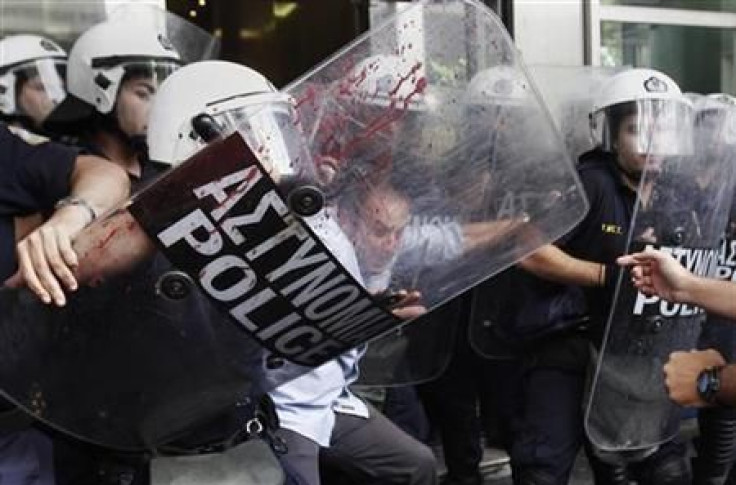Greece Faces Auditor Verdict, Fresh Aid at Stake

International auditors return to Athens on Thursday to deliver a verdict on whether Greece's tougher austerity measures qualify for aid to avert a default that would plunge the country into bankruptcy.
Inspectors from the European Union (EU) and International Monetary Fund (IMF) quit Greece on September 2, after the government failed to convince them it was doing enough in terms of deficit cuts and economic reforms to deserve further payments under its 110-billion-euro ($150 billion) bailout agreed last year.
Despite the acrimony, analysts expect the talks to usher in the disbursement of a sixth bailout tranche for Greece, money the country badly needs to avoid running out of cash next month and plunging the euro zone into an even deeper crisis.
I think euro zone finance ministers will in the end release the next tranche of bailout payments for Greece, Joerg Kraemer, an economist at Commmerzbank, said on the eve of the visit.
They will not dare turning off the tap on Greece right now, it's a political decision, he said.
The inspectors' departure earlier this month prompted talk about a sovereign Greek default and focused minds in Athens, Brussels and Washington which are anxious Greece does not fall over the precipice and endanger the world financial system.
After a frantic search for new measures, the Socialist government decided to cut public sector salaries by a fifth, start sacking civil servants, unleash a tax onslaught on property owners and close tax loopholes to plug its fiscal hole.
Before returning, the EU/IMF mission, also known as the troika, demanded written assurances by Greek authorities that the new pledges will be met, highlighting a lack of trust toward the country after its repeated fiscal slippages and foot-dragging about privatizations.
Prime Minister George Papandreou and Finance Minister Evangelos Venizelos provided assurances in letters they sent to the troika. The letters' contents were not made public but the troika visit was conditional on the letters being convincing.
WALKOUTS PROTESTS GRIP GREECE
The Greek cabinet is scheduled to meet early on Thursday to discuss and decide on a new wage scale for civil servants and a so-called Labour Reserve, into which 30,000 state workers will be put at 60 percent of their salary. If they fail to find another state job within 12 months, they will be dismissed.
No schedule of troika meetings with Greek ministers has been published so far, in which the country's accelerated deficit-cut strategy will be intensively discussed.
The property tax, the first in a string of austerity measures to face the test of lawmakers' approval, sailed through parliament late on Tuesday, with all the Socialist party's 154 deputies solidly backing the measure without a single defection.
But labor unions have not stopped mobilizing against the measures, calling for new anti-austerity walkouts and protests that may shake the Socialists' resolve to approve the rest of the measures, expected to be passed by parliament next month.
Riot police fired teargas at protesters in central Syntagma Square in Athens, the epicenter of protest which saw bloody clashes in June, as lawmakers passed the property tax.
Taxi owners who oppose the liberalization of their trade will continue their 48-hour strike on Thursday. Hospital workers protesting cuts will walk off the job for three hours. Trade union ADEDY, which represents the country's 730,000 civil servants, called a rally and said it would march on parliament.
The latest tax measures are insane, ADEDY said. Millions of households are driven to desperation.
Papandreou's PASOK party trails the conservative opposition by 5.8 points, according to the latest opinion poll. The conservatives want a renegotiation of the bailout deal to allow for lower taxes and less austerity, something the troika has rejected.
(Reporting by Harry Papachristou; Editing by Michael Roddy)
© Copyright Thomson Reuters 2024. All rights reserved.











